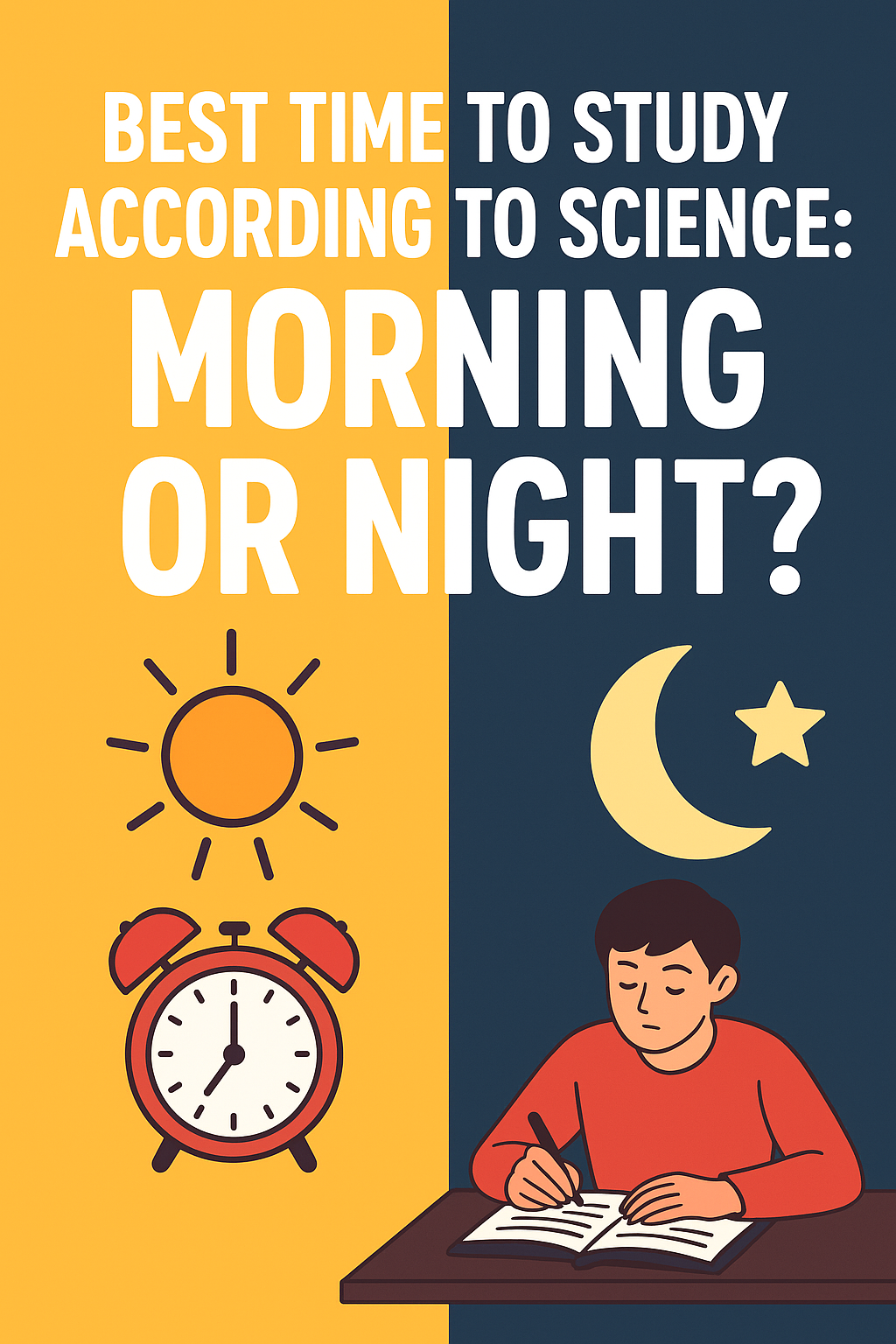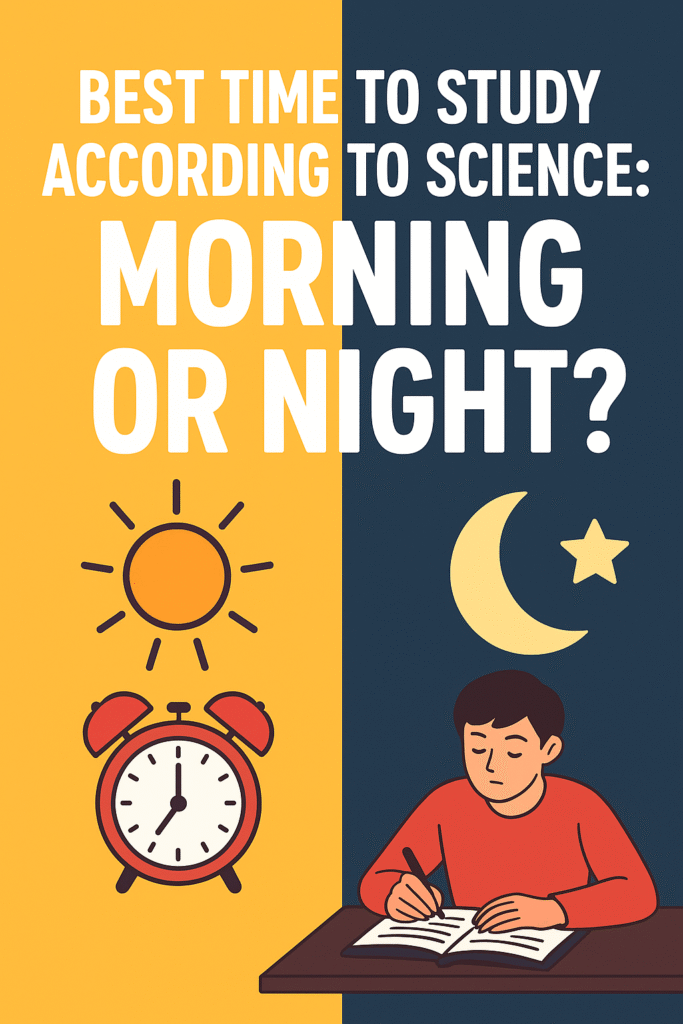Physical Address
304 North Cardinal St.
Dorchester Center, MA 02124
Physical Address
304 North Cardinal St.
Dorchester Center, MA 02124
“Yojana, News, Sarkari Updates & Study Tips”
“Yojana, News, Sarkari Updates & Study Tips”

Morning or night? Discover the best time to study based on scientific research for maximum focus and memory retention.

Have you ever wondered why sometimes your mind feels sharp and other times it feels sluggish? The truth is, the best time to study depends on your body’s internal clock and your daily routine. Science shows that when you study during your peak energy hours, you learn faster, remember longer, and perform better in exams. But should you choose morning or night? Let’s break it down.
✅ Pros of Morning Study
❌ Cons of Morning Study
✅ Pros of Night Study
❌ Cons of Night Study
A study published in Chronobiology International revealed that our circadian rhythm—the body’s natural 24-hour cycle—affects focus and memory.
This means the best time to study is different for everyone. The key is to identify when your mind is most alert.
If your main goal is long-term memory and exam success, morning study sessions have a slight scientific advantage. Your brain is fresh, distractions are minimal, and your memory works at peak capacity.
However, if you feel more productive at night, there’s nothing wrong with studying after sunset—just make sure you get enough sleep.